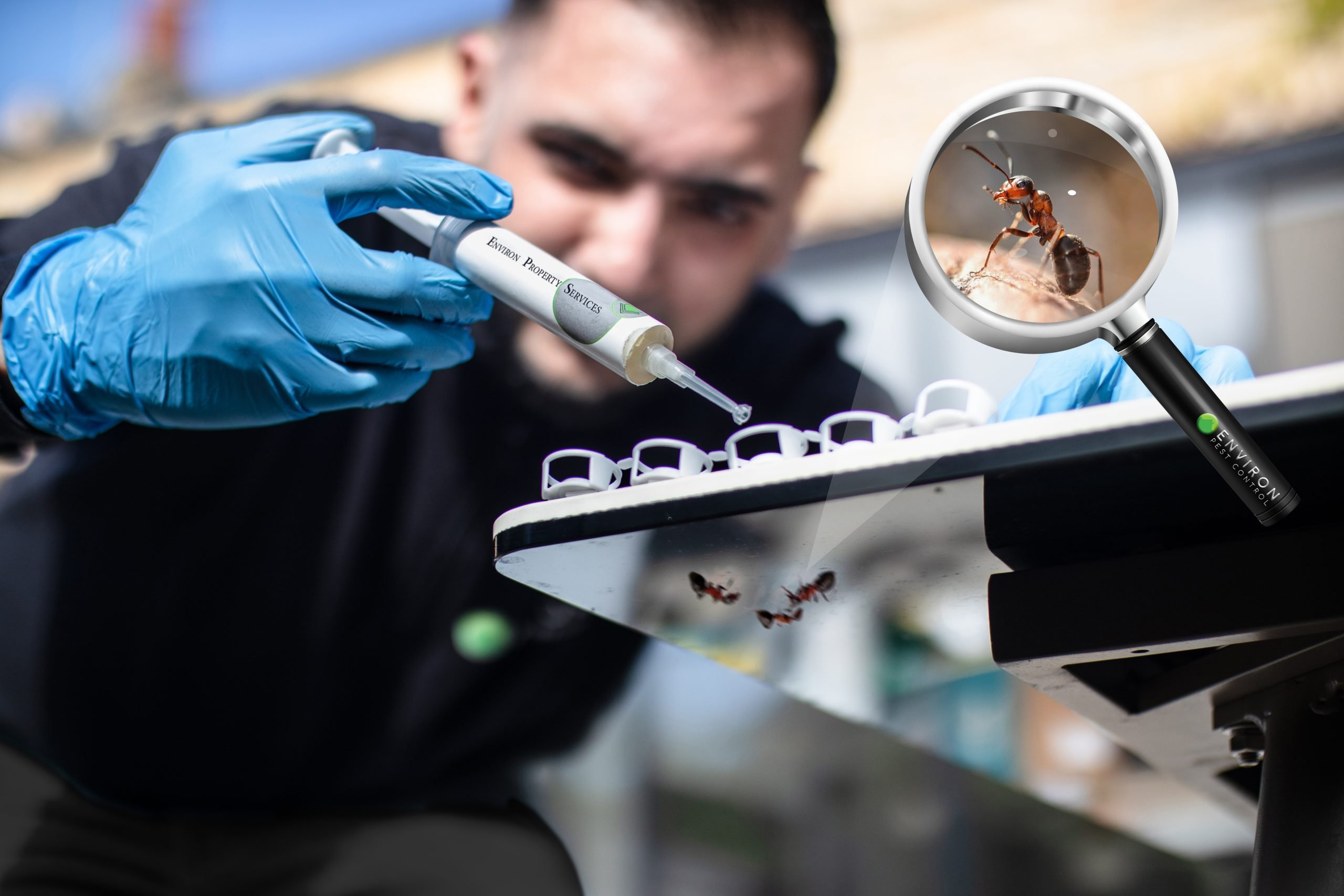Garden Ant
- Size: 5mm long
- Colour: dark brown or black
- Queen: 15mm long
- Habitat: gardens and kitchens
The garden ant is what most people in the UK will think of when they hear the word “ant”. This common black ant is found just about everywhere, including our homes and businesses where they’re attracted to sweet-smelling food and drink.
Their success in urban environments is thanks to their ability to make nests in just about any crack they can find. You can often spot them emerging from beneath paving stones and between bricks, first making an appearance late March/early April.
In homes and businesses, garden ants are normally found in the kitchen, with kitchens bordering gardens more at risk. However, as ants can climb almost any surface, garden ants can be found in flats or offices many floors above ground.
Ants leave pheromone trails behind them as they search for food sources. Once they find one – such as exposed fruit, sugar of pet food – that trail can become a highway for hundreds, sometimes thousands of ants.
While garden ants may not carry disease and are considered a nuisance pest, they can pick up and spread harmful bacteria when they crawl through dirty spaces or across contaminated surfaces.
If you want garden ants to stop coming back, you need internal and external proofing to identify access points and direct extermination of any queens that have made nests within your premises. Just squashing or spraying ants as you see them will have no effect.












